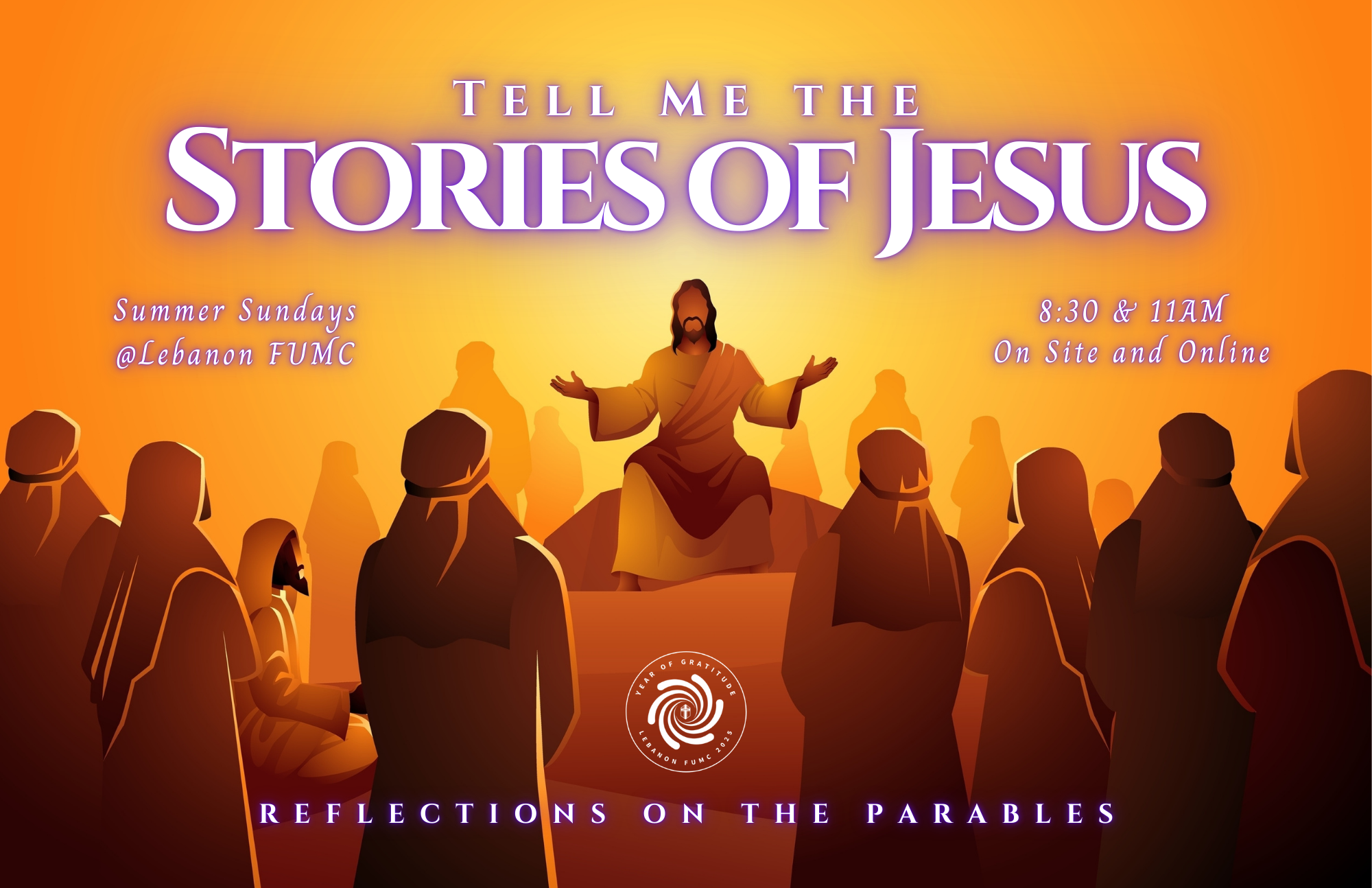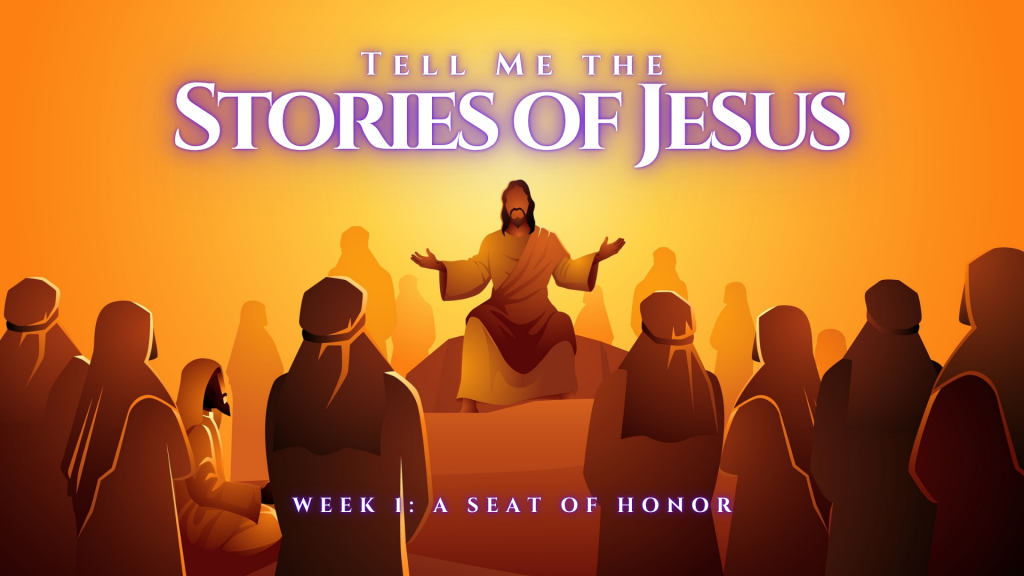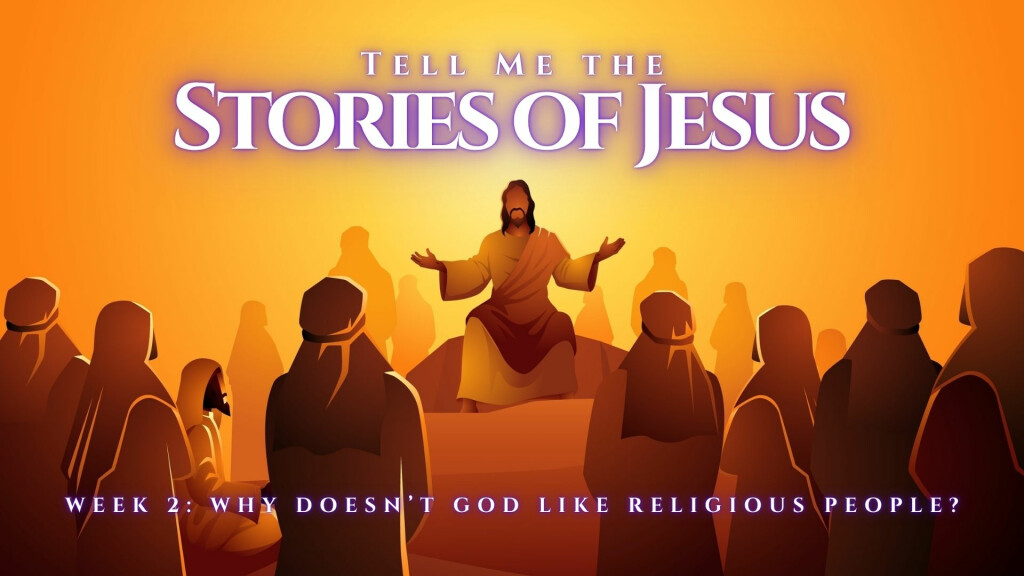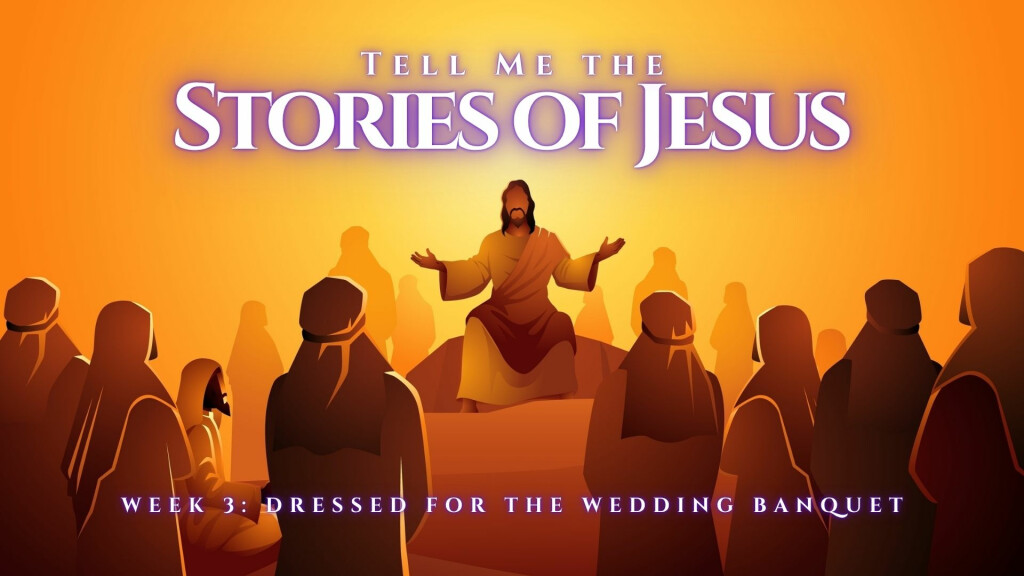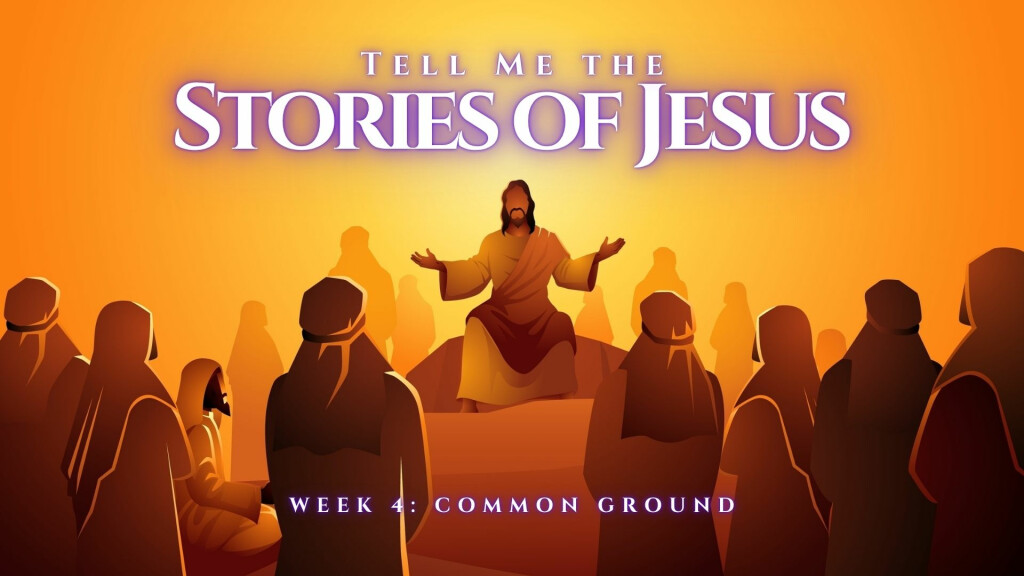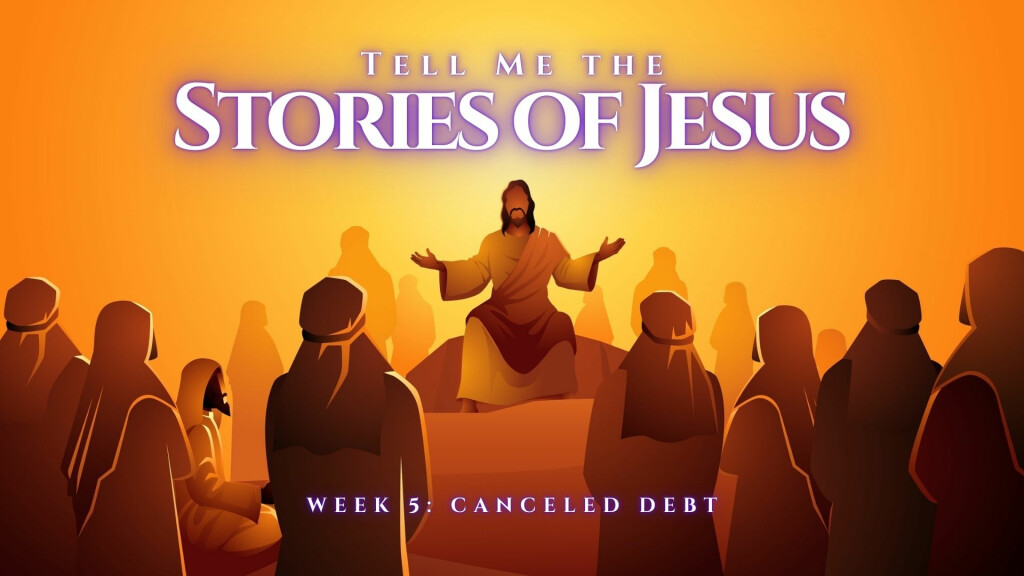July 13, 2025 | Steve Boutell
Passage: Luke 7:36-50
We are currently in our summertime message series, exploring the Parables of Jesus. We have been telling the Stories of Jesus and uncovering how they speak into our stories today. Today, we turn to the parable of the canceled debt. Before we dive into the story Jesus tells about debt, let’s consider what debt looks like in our world today. Household debt in the United States reached a record-breaking $18.2 trillion in the first quarter of 2025. This represents a significant increase of $4.06 trillion since the end of 2019. Approximately 77.4% of American families carry some form of debt. When you entered worship this morning, you were given one of 5 candy bar, and each one represents a % of Americans and their relationship with debt. Now, some of you have already eaten your candy bar! I hope you didn’t eat the wrapper. When I call out your candy bar, I want you to do me a favor and hold your candy bar up. There will be a whole bunch of people so that you won’t be alone. Each candy bar represents a percentage of Americans, not just the church - this is all of America 1st Candy Bar is the Snickers. Where are my Snickers people ? Thank you. This group represents 22% of Americans. These folks are living large financially. They are completely debt-free! Your house and your car are paid for. If you have an emergency, you’re prepared. You might even snicker if your AC went out. You could go out and buy a new one without having to use a credit card. Thank God for them. 2nd Candy Bar - 100 Grand - raise - there are just a few of these here today (these folks are also in the debt-free group, too), because you represent 15% of Americans who are millionaires - you guys can sit down; we’re not going to take a lot about you today. Thank God for them. 3rd Candy Bar - PayDay. Please hold your candy bar up. This is normal - I know some of you think your spectacular - but you’re just normal - this is obviously our largest group. You all represent 50% of people in the United States. Let’s Thank God for them. Let me tell you a little bit more about normal. The average American household earns approximately $80,000 in income per year, but in 2024, it carried an average debt of over $100,000 across mortgages, auto loans, student loans, and credit cards. Many Normal Americans in this crowd simply live from payday to payday. And the Payday Crowd doesn’t really have an emergency fund. If you worked hard and had a little discipline, you could save $ 1,000 in about three months (statistically). So if the tires blew out on your car you could buy new tires with 90 days same as cash. And if you just paid the minimum payment on all your debt - this is the worst case scenario - it could take you at least 10 years to pay off your debt. Now stay with me - this is 50% of America. 4th Candy Bar - Butterfinger - raise Here’s the thing about you, Butterfinger group - all of your money has slipped through your butter fingers. You represent 11% of Americans who live below the poverty line. Thank God for them. According to the most recent report issued in January 2023, the poverty threshold for a family of four is just under $30,000. This doesn’t even take into consideration what is known as the ALICE Threshold, which is the acronym used to describe households living above the Federal Poverty Level but still unable to afford the basic cost of living in their county. Including this group would drastically increase the percentage of you chewing on a Butterfinger today. It would take this group about 1 year to save $1,000 - and it would take you - if you did minimum payments - a couple of decades to get out of debt. That’s the Butterfingers - 11% of Americans. Last Candy Bar - Baby Ruth - 2% of Americans - hold that BR high. You are everything the Butterfingers were - mounds of debt - except - and this is a bad day for you - you also have at least $100,000 of unsecured credit card debt. 2% of Americans - you know how you get there? 1 swipe at a time. They call this death by credit card. Baby Ruth, you’ve got a problem. Thank God for them. If you haven’t already, you can eat your candy bar. Ironic = preacher who can’t eat sugar gives out candy bars on Sunday morning.Here’s what this all means - Regardless of your faith, only a small % of Americans are financially healthy. A lot of us are normal! And we’re in debt. The average American spends 126% of their income. That means for every dollar we make, we spend $1.25. That’s normal. So today, we look at a story Jesus told about debt and consider the power this story has for our world today. In today’s story, Jesus is having dinner at the home of a Pharisee. The setup for this little story is something that was normal in the time of Jesus. Most likely a banquet that is set up to honor Jesus. The way it would have worked is that normally traveling teachers would have been invited, after they had preached, to the Sabbath meal. When Luke tells us that they reclined at the table, it would have hinted at a formal occasion. At such an event, some things were normal. Usually, women did not eat with men at these banquets. Women and slaves would stand outside the circle of tables and near the feet of the reclining guests. But at this meal, we are told that a certain immoral woman from that city heard Jesus was eating there and she wanted to get close to him. She brought a beautiful alabaster jar filled with expensive perfume. Then she knelt behind Jesus at his feet, and started weeping. Her tears fell on his feet, and she wiped them off with her hair. Then she continued kissing his feet and applying perfume to them. In our story for today, this woman walks into the scene with tears flowing (she’s sobbing). We are not told the reason for this woman’s tears, and so we should probably leave it undecided. All we know is that she has also unconsciously taken off her head covering and unbound her hair in the presence of men. In that culture, this act alone was considered incredibly sinful. The other thing we know is that there is a lot of gratitude because kissing a person’s feet is a sign of the most heartfelt gratitude, such as a man might show to one who had saved his life. Anointing Jesus’ feet, kissing them repeatedly, and drying them with her hair would have been seen as a shameful act for a woman to do, expecially in a setting like this. She was clearly so grateful that she completely forgot her surroundings. This parable is loaded with hints to let us know that this woman is in the wrong place at the wrong time, doing the wrong thing. Simon the Pharisee, who had invited Jesus, couldn’t believe what he saw. He made a point to say about Jesus, “If this man were a prophet, he would know what kind of woman is touching him. She’s a sinner!” We are told that Jesus knew what he was thinking, so he said to Simon, ”I have a little story to tell you.” “A man loaned money to two people—500 pieces of silver to one and 50 pieces to the other. But neither of them could repay him, so he kindly forgave them both, canceling their debts. Jesus' story is a very simple one. It is only two verses long. We’ve got this moneylender, who obviously doesn’t care about money at all, we might guess what kind of candy bar he ate. He has two guys who owe him money. One a large amount and the other a smaller amount, and then, based on nothing at all, he just cancels the debts. Hearers at this time would have been familiar with this idea of canceling debts. In OT Books of the Law, we find out about the year of Jubilee, every 50 years, when everyone’s debts are canceled. So, it may have been a subversive idea to some, but it would not have been to those gathered around the table, because the idea of canceling debts was already ingrained in their belief system. After his story, like many parables, Jesus asks a question. Who do you suppose loved him more after that?” Simon answered, “I suppose the one for whom he canceled the bigger debt.” The answer to the question is extremely obvious, but as Simon answers the question, he doesn’t realize he opened up the door for Jesus to come in and change his life. You see, Jesus is brilliant. Once Simon answers the question, the answer we all would have given. Obviously, the person forgiven the greater debt should love more or be more grateful. How does that candy bar taste? Think about what it would be like to have your debt completely forgiven. Jesus then takes this opportunity to show that Simon hasn’t demonstrated any care at all, while the woman was excessively expressive in her love. Then [Jesus] turned to the woman and said to Simon, “Look at this woman kneeling here. When I entered your home, you didn’t offer me water to wash the dust from my feet, but she washed them with her tears and wiped them with her hair. You didn’t greet me with a kiss, but from the time I first came in, she has not stopped kissing my feet. You neglected the courtesy of olive oil to anoint my head, but she has anointed my feet with rare perfume. “I tell you, her sins—and they are many—have been forgiven, so she has shown me much love. But a person who is forgiven little shows only little love.” We started today with a somewhat silly illustration of Candy Bars We used that illustration to examine the debt that Americans have. One of the things about an illustration like that is that it shows us that we’re normal. We all have debt that needs to be forgiven. Whether you're still picking the peanuts out of your teeth from your payday bar, or are still savoring the taste of your 100 Grand, there is some debt that you need forgiven. Even if it is not a financial debt, we all need to be forgiven. We’re not just broke - we’re broken. That’s why Jesus tells such a great story when he says to the woman, “Your sins are forgiven.” The men at the table said among themselves, “Who is this man, that he goes around forgiving sins?” And Jesus said to the woman, “Your faith has saved you; go in peace.” Underneath this story lie questions of identity for everyone who is part of it. The identity of the woman is at issue. The Pharisee is sure she is a sinner; Jesus is sure she is a forgiven sinner. The Pharisee's identity is also in question. Is he as pure and right before God as he thinks? Issues of identity are directly related to issues of value and honor. Jesus’ understanding of the value and honor of people directly contrasts with that of Simon. If Simon had known who that Woman was in Jesus' eyes, he would have realized that she was better off than he was. It is challenging to be gracious and generous if we don’t recognize our true identity. I think if we were honest with ourselves, we would see ourselves as the Simon of this story. We’ve somehow managed to elevate ourselves above other people. So when that guy who drinks too much, or that marriage that barely works, or those crappy parents walk into the room. Or when we see someone eating a different candy bar than we’re eating, we instantly judge them and put them in their place in our minds. We don’t really think about it all that much. We don’t see it as a big deal. But then Jesus tells this story, and he leaves it just hanging there. He once again reminds us that the people we judge, the ones we think we are better than, are the ones he came to save. So the question isn’t how can we be like Simon in all of our religious pride, but how can we be like the woman who interrupts the dinner to express gratitude? The difference between the woman and Simon was their understanding of their debt that had been forgiven. The woman knew her place. She was desolate in the presence of Jesus. Her entire existence was one of gratitude towards Jesus and who He was. She knew the kind of person she was and how deeply she needed Jesus and His forgiveness. Simon, on the other hand, kind of stood back and silently judged. He had spent his entire life making sure he was better than this woman and anyone else for that matter. And now look at this gross display of disrespect and her parading of her sin. How could Jesus even stand to be in the same room as this girl? And wham. Jesus lays it on him. He flips his world upside down. Everything that Simon thought meant honor and righteousness was now working against him. Simon was so caught up in his own righteousness that he could no longer see the great debt that he had, which was canceled. Simon’s problem wasn’t that he hadn’t sinned enough; it was that he didn’t realize how much of a sinner he really was. This story isn’t really about two different people having their different amounts of debt canceled. Jesus told this story to trap Simon (and us) in his own game. There is no greater debt and smaller debt in this life. We all have the greater debt. What there is, though, is people who think they have a smaller debt and those who know they have a larger debt. This story challenged us to reconsider our identity and the debt that we need forgiven. Then, once we can truly see where we stand with God and each other, forgiveness will be easy. No one will have earned their forgiveness or their place with God. Forgiveness really isn’t about the wrong that was done. Forgiveness is about us and who we truly are. And it’s about who God is. If we can see the truth, that God has forgiven us, the massive debt, and recognize ourselves as sinners in need of grace, then forgiveness and gratitude become natural. I wonder this morning - Who do you understand yourself to be? What candy bar are you? What debt do you need forgiven today - Not just financially, but in other ways? Where are you not only broke, but where are you broken?
Series Information
